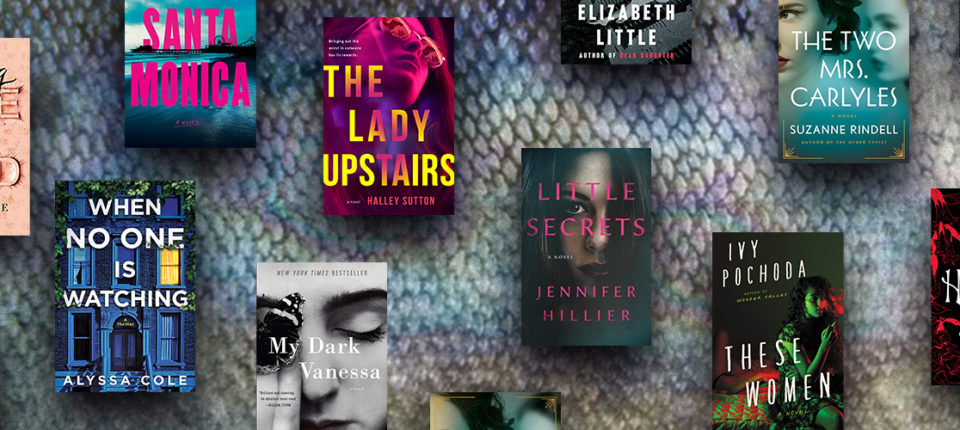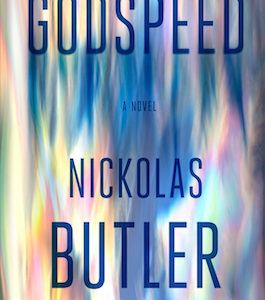Readers, it’s been a rough year to recommend thrillers. Given what we have been living through, I had moments when I thought, “Am I helping here? Do people really want to visit worlds full of gaslighting, mixed intensions, and flat-out pathography?” When I thought about it—about all you readers, trapped at home with your families and your jobs and your yeast shortages and Zooms—I realized, yes, you needed books. You needed books badly, to remember what the world was like in the before times.
Here are some excellent books that should survive not only this but the more normal years we might have to look forward to when all of this is over. There are quite a few debuts, which is always heartening: I love an early career writer before she has internalized the conventions of the genre. There are a couple set in Hollywood, or just in LA; there’s an overlooked Munchausen-by-Proxy book; and a few queer books and a controversial one on a subject which is going to be part of our reading lives for a long time, the twisted relationship between a female high-school student and her predatory teacher. Goodbye 2020, let’s ring in a more twisted but less eventful 2021.
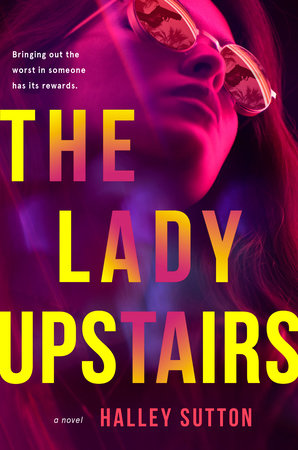
Halley Sutton, The Lady Upstairs
(Putnam)
Sometimes publishers make this job easy: Sutton’s debut has praise from Elizabeth Little, Amy Gentry, and Layne Fargo (who discovered Sutton in the slush pile of Pitch Wars), which is the list of x’s I might have compiled in a “if you like x, then try y” about Sutton’s book. She has the knowledge and love for L.A. and noir bits of Little’s Pretty as a Picture, the cracking wise feminism of Gentry’s last book, Last Woman Standing, and the sultry atmosphere that made Fargo’s Temper a standout. The plot: Jo, a woman in Los Angeles who blackmails powerful sleazeballs for a living, is part of a crew run by the Lady Upstairs. A job gets complicated after her mark is found murdered, and Jo decides she wants out—but this is not a two weeks’ notice kind of job and the Lady is displeased. Come for the atmosphere; stay for the clever twists.
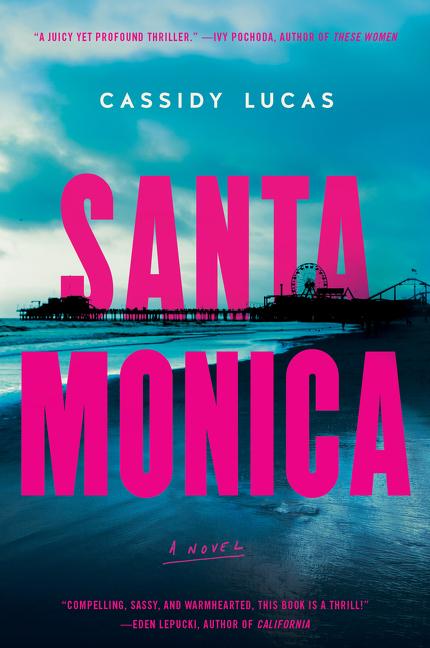
Cassidy Lucas, Santa Monica
(Harper Perennial)
Rarely does a book grab me from its premise but this one did: handsome, elite trainer to the rich and fabulous women of Santa Monica found murdered on his gym floor. I would have written this more like a game of Clue—Mrs. Anderson did it in the locker room with a dumbbell!—but the duo of best friends Julia Fierro and Caeli Wolfson Widger have taken a more sophisticated approach, with the dark secrets of the sun-kissed ladies spilling out as the investigation proceeds. Santa Monica is Liane Moriarty in LA (as opposed to Big Little Lies, which was filmed as Liane Moriarty in Monterey). Wherever you are it’s a good time.
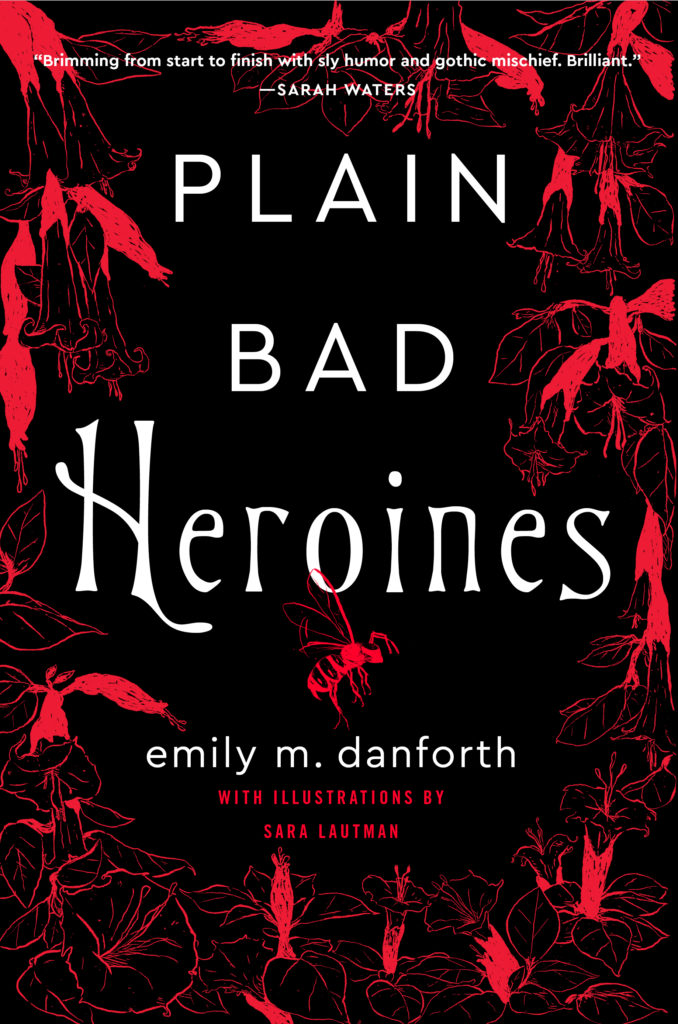
emily m. danforth, Plain Bad Heroines
(William Morrow)
Any book called a queer gothic has my attention, and Heroines also cleverly engages with the history of the novel as a corrupting force for women. If you’ve spent any time reading Samuel Richardson’s delightful rape romp Pamela and its offspring—basically, novels—you will recognize the territory danforth is treading upon. In skewering the tradition of the novel and worries about the purity of its heroines—there were unlikeable women in novels since, well, Pamela—danforth delivers a clever and refreshing book.
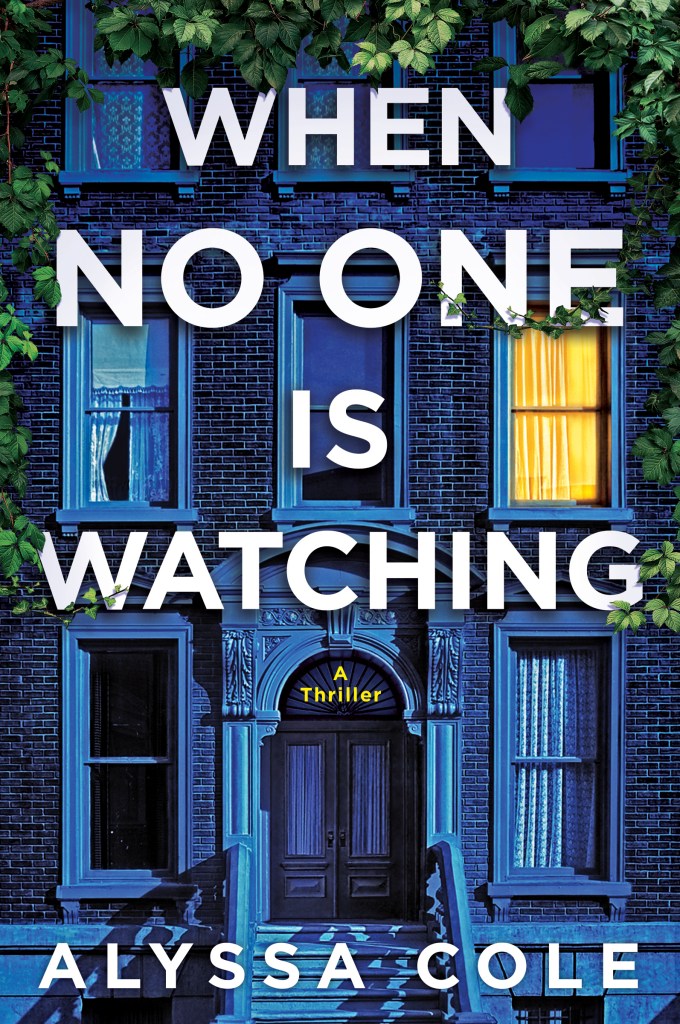
Alyssa Cole, When No One Is Watching
(William Morrow)
Cole is best known as a romance writer, but she’s been transitioning over to thrillers with a soupçon of romance. Her latest, When No One Was Watching, is a chronicle of Brooklyn gentrification (has anywhere else ever had such a well-documented gentrification?). Native Sydney Green is watching her neighborhood get invaded by condos and condo-sized strollers (I made that second part up, but it’s true). When she finds herself getting involved with one of her new neighbors, a man named Theo, Sydney is suddenly stricken with panic and paranoia. Can she trust this newcomer? Does he have good intensions for the neighborhood and for Sydney, or is he playing a game she does not know?
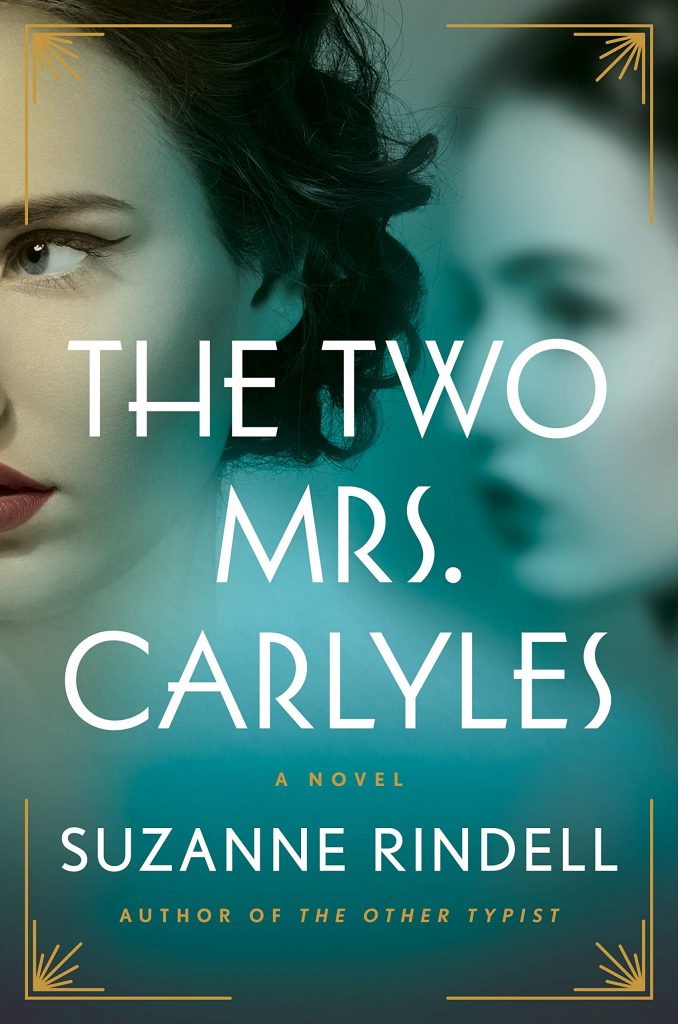
Suzanne Rindell, The Two Mrs. Carlyles
(Putnam)
Rindell is one of those talented writers who moves between the crime fiction and literary worlds with style and ease: we should just invent a new category called literary crime fiction for the likes of Rindell, Sara Gran, James Sallis, Laura Lippman, Steph Cha, and Dennis Lehane (for starters). Her previous books, the Highsmith-esque The Other Typist and the Rona Jaffe-esque Three Martini Lunch, had crime fiction elements and were excellent straight-up novels. Same goes for The Two Mrs. Carlyles, set in San Francisco right after the 1906 earthquake, a perfect backdrop for a psychological thriller that I can’t recall encountering before (feel free to correct me if I overlooked something). From the title a savvy reader might guess this is her Du Maurier-esque book, and she would be correct. Rindell is better than most of the writers compared to these oft mentioned forerunners of domestic suspense: she’s a talented world-builder and an evocative writer who is not getting the praise she merits. Let’s help her out.
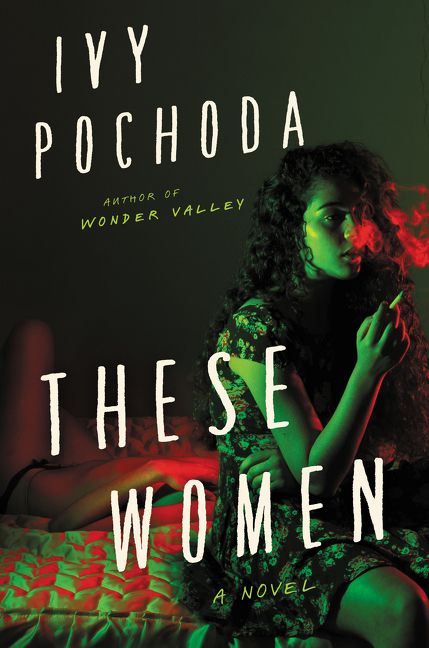
Ivy Pochoda, These Women
(Ecco)
Pochoda is one of the bright young things of LA crime writing, along with Elizabeth Little, Steph Cha, Rachel Howzell Hall, and Joe Ide. Pochoda combines the diversity of her LA setting with well-drawn characters to give us a prismatic crime novel about five different women who live in the same general neighborhood near the sleaze and easy pleasures of Western Avenue (also, not coincidentally, where Pochoda lives). Despite their superficial differences, the five women—these women—all will be connected by a serial killer hunting in their neighborhood. Pochoda simultaneously reminds us that crime can thrive in our own backyards and that it will touch the lives of people who never should have met.

Jennifer Hillier, Little Secrets
(Minotaur)
It’s probably weird to say Jennifer Hillier is now my favorite crime writer about serial killers, but she is (well, in North America, since as long as Scot Val McDermid is writing Tony and Carol novels she will have a special place in my cold, black, shriveled little heart). Hillier has two formidable tricks as a writer: she is very good at finding and communicating her characters’ flaws, which is precisely the thing that makes them attractive victims. She also is very, very good at writing from the criminal’s point of view, so we see the victims not just from the narrator’s point of view but also as they are being stalked and attacked. Put those two talents together and you have a bang-up thriller every time, and Little Secrets is no exception.
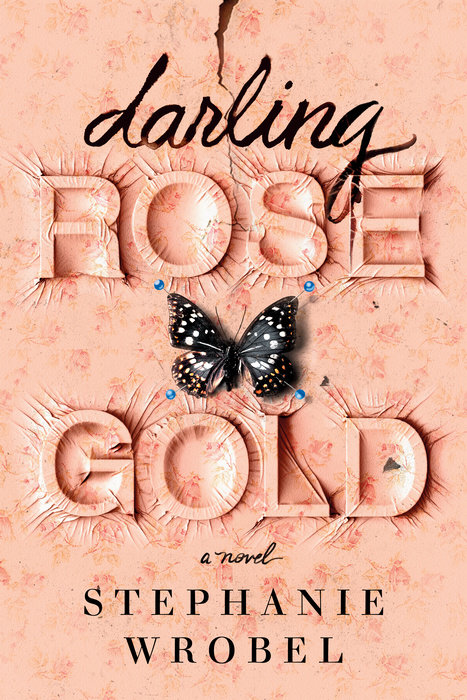
Stephanie Wrobel, Darling Rose Gold
(Berkley)
This is a super twisted delectable read which is likely be among my favorite books of the year, one of those things I recommend with the preface, “What pushes your buttons around mother-daughter relationships?” (Reader, you should ask yourself that question too.) It’s a book you have to have a certain cynicism to enjoy: good-bye Pollyannas and others who believe in the that people are ultimately good. In Rose, there’s no room for such sentiment. No one is telling the truth, both daughter and mother have serious agendas, and you have a book that wonders just how far a daughter should go to please her mother–especially when her mother is obviously unhinged.
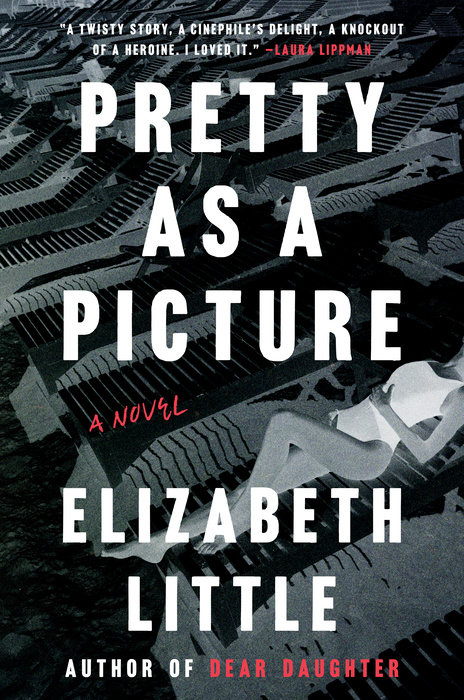
Elizabeth Little, Pretty as a Picture
(Viking)
Some of us have been waiting impatiently for Little’s follow up to 2014’s Dear Daughter, an excellent crime novel which also had the appeal of a tabloid story: a young socialite accused of her mother’s murder sets out to find out what really happened. This time, Little’s material is also the meat of gossip magazines and celebrity websites: the movies. Is this a satisfying, twisty thriller? Why, yes. Is it also a smart meditation on the place that the movies occupy in pop culture, even in the age of reaction videos on YouTube and the ubiquity of streaming services? Yes, it’s that too.
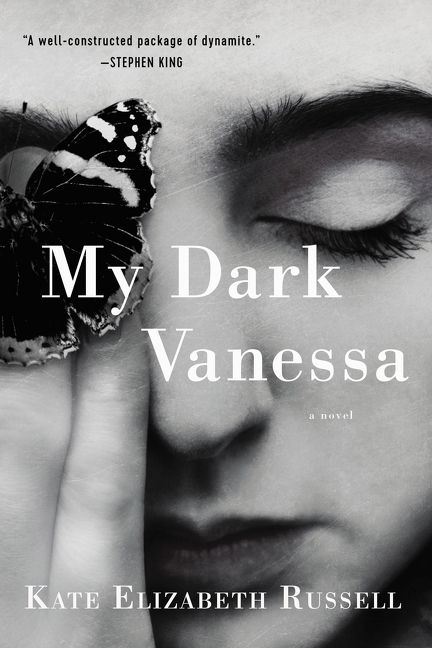
Kate Elizabeth Russell, My Dark Vanessa
(William Morrow)
My Dark Vanessa has extraordinary ambitions. It wants to be Lolita rewritten so the nymphet pulls the strings—or she thinks she does. Vanessa Wye was 15 years old when she had an affair with her 42-year-old English teacher, Jacob Strane, a few years ago. She never imagined the affair was anything but consensual, though when it was discovered she was asked to leave her tony boarding school. It is not until she hears that Strane is having an affair with another student that she really examines the way he gaslighted, manipulated, and controlled her. Score one for the #MeToo movement; this is among the best crime fiction to emerge steeped those issues, from consent to grooming to what counts as sexual assault.

